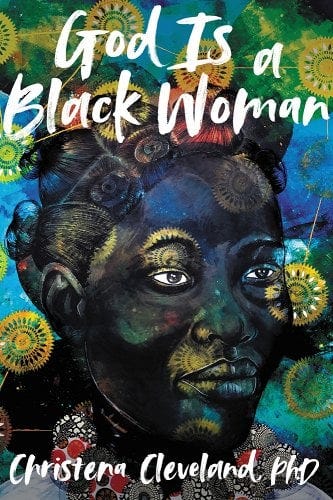If you can control it, it’s not God
Reflections on a Jesus with hair like wool and feet like bronze in a time of white supremacist dog whistles
*Note: This post is the fifth in a series exploring different angles on faith & politics while wandering (at a leisurely pace) through the first couple chapters of the biblical book of Revelation. I hope it provides some good food for thought and conversation with people in your life as we approach U.S. elections. The first four posts are I’m a woman who thinks about the Roman Empire all the time, God doesn’t anoint our political leaders, We can do better than “rising above” politics, and What kind of leaders are we looking for?
“To be wrong about God is the condition of humanity.”
-Rachel Held Evans, in Faith Unraveled
For those who believe in God—has God surprised you? Ever? How about recently?
And what does it even mean for us to be surprised by God?
It might mean something very different to each of us. I don’t think it’s quite the same thing as simply being surprised by something that happens in our lives, or being surprised by something that feels like an unexpected gift—although I think it could include both of those things.
Maybe it’s something closer to this: having some aspect of our view of God challenged in some way.
As in, someone (or something that happens in our world) presents an alternate view, and we’re open enough to consider it. We’re open to admitting that, as Rachel Held Evans said, we’re all wrong about God in some way. “To be wrong about God is the condition of humanity.”
I think about this when I hear religious leaders talk about the “will of God” as if they know it inside and out, and nothing anyone could do or say could change what they assume the will of God to be.
I think about it when I hear politicians sound so very sure they know God’s will for the United States. (For all of it, not just their own religious group.)
I think about it when I read the foreword J. D. Vance wrote to the yet-to-be-released (apparently for political reasons? what?) book Dawn’s Early Light by Project 2025 architect Kevin Roberts, when I see how certain Vance sounds about what a “fundamentally Christian” political system entails. (Yikes).
And I think about it when I read the next few verses in the biblical book of Revelation:
I, John, y’all’s sibling and fellow sharer in the afflictions and kingdom and steadfast endurance in Jesus, was on the island called Patmos on account of the word of God and the testimony of Jesus. I was in a spirit on the Lord’s day, and I heard behind me a great voice like a trumpet, saying, “that which you see, write in a book and send to the seven churches, to Ephesus and to Smyrna and to Pergamum and to Thyatira and to Sardis and to Philadelphia and to Laodicea.”
And I turned to see the voice that was speaking with me, and, after turning, I saw seven golden lampstands, and in the middle of the lampstands, one like a child of humanity, clothed in a garment reaching to the feet and girded across the breasts with a golden sash.
And his head and hairs were white like wool, white like snow, and his eyes like a flame of fire, and his feet like burnished bronze, like they had been burned in a furnace, and his voice like a voice of many waters, and having in his right hand seven stars, and out of his mouth came a sharp two-edged sword, and his face shines like the sun in its power.
And when I saw him, I fell to my feet like a dead one, and he put his right hand on me, saying, “do not fear; I am the first one and the last one and the living one, and I was dead, and see, I am living, forever and ever, and I hold the keys of death and of Hades.
That’s Revelation 1:8-18, my translation.
For those with a Christian background (or not)―does this vision of Jesus surprise you? The lampstands lit with fire, the blazing white hair, the eyes like a flame, the feet looking like they’ve been through a fiery furnace, the face that shines like the sun at its brightest? The voice like many waters?
How about John’s reaction―falling to his feet like a dead person, so terrified that he has to be told not to fear?
I don’t know about you, but I’m thinking of nice meek White Jesus in nice pretty white Christian artwork doing nice gentle shepherdly White Jesus things. This is a little different.

When we encounter a vision of God that’s different for us, or surprising to us, what do we do? Do we find it threatening? Do we write it off too quickly?
For me, these days, this kind of encounter feels hopeful. I don’t want the visions of God I’ve been indoctrinated with to be all that there is. I don’t want to fall into the trap of thinking I know everything about God.
I think of
’s brilliant book God Is a Black Woman, and her intellectual and spiritual journey (as well as a literal journey through France!) toward embracing Black Madonnas and everything they embody. This was a challenging book for me in some ways. But so good. So expansive. And I need my view of God expanded.I also think of Barbara Brown Taylor’s lovely book Holy Envy: Finding God in the Faith of Others. Taylor offers this definition of spirituality from a friend of hers: spirituality is “the active pursuit of a God you didn’t make up.”
That’s what I see when I read those verses from the book of Revelation. A God John didn’t make up. A God I didn’t make up.
This is what we gain, I think, when we open ourselves up to God not looking or acting or being like we were taught God should look or act or be.
In contrast, when people make up images of Jesus―in my experience, at least―these made-up images tend not to look like the Jesus John describes. When we make up images of Jesus, they tend to look a bit like us.
And, since Europeans and people of European descent have dominated so much of Christianity for so long, this means that there are a lot of images out there of a Jesus who looks awfully white. It’s harder―not at all impossible, but harder―to find images of Jesus that have hair like wool (Rev. 1:14) and feet the color of burnished bronze (Rev. 1:15).
But what do we miss when all our images of Jesus―which tend to serve as proxies for our mental images of God―are sandy-haired and blue-eyed?
For those who identify with the life and teachings of Jesus in some way, I think it matters how we imagine him. Because we’ve got politicians using all sorts of not-so-subtle dog whistles to paint a vision of a better life for a very particular kind of person, a very particular kind of family. (Spoiler: they’re white and patriarchal and conservative Christian and as child-full as possible.)
We’ve got people running for office on the currency of fear―fear of the “other,” fear especially of immigrants and of people of color. We’ve got people running on platforms that assume that for some to flourish, others need to be punished, deprived, restricted, deported, carefully controlled.
But the thing about Jesus―the real one, the one we white folks didn’t make up―is that Jesus is part of communities of color. Jesus belongs to immigrant communities. Jesus is the child of humanity, all humanity, not just the Son of a very particular kind of Man.
So for people who identify with Jesus, the way we see him―who we see in him, whose communities we imagine him a part of, who we envision him caring about and protecting―is everything.
Something to think about this election season. Perhaps something to talk about with a friend, too.
How do they imagine Jesus?
Where is Jesus, for them, in communities of different races or ethnicities or socioeconomic statuses or immigration statuses?
Are they open to their assumptions about who is worthy and deserving of protection and peace and flourishing being shattered open by an expansive God we did not make up?
I hope something here sparks some good conversations. Thanks for being here.
And if you’ve come across an image of Jesus―or of Christ in feminine form, sometimes called Christa―that has challenged or expanded or enlivened your view of God and humanity in some way, throw the link in the comments―I’d love to see!




Same good path, katharine,
(Kudos to the naked pastor)
https://images.app.goo.gl/ahSeR4J7sFQXj7fw6
Love this. It's such a challenge to remember that every time I draw lines around Jesus, he erases them. The first Jesus image I saw that really caught me off guard was a depiction of Jesus in Chinese art. I don't think it was this one, exactly, but similar: https://images.app.goo.gl/y5qEFNQUgQGNXhFG7